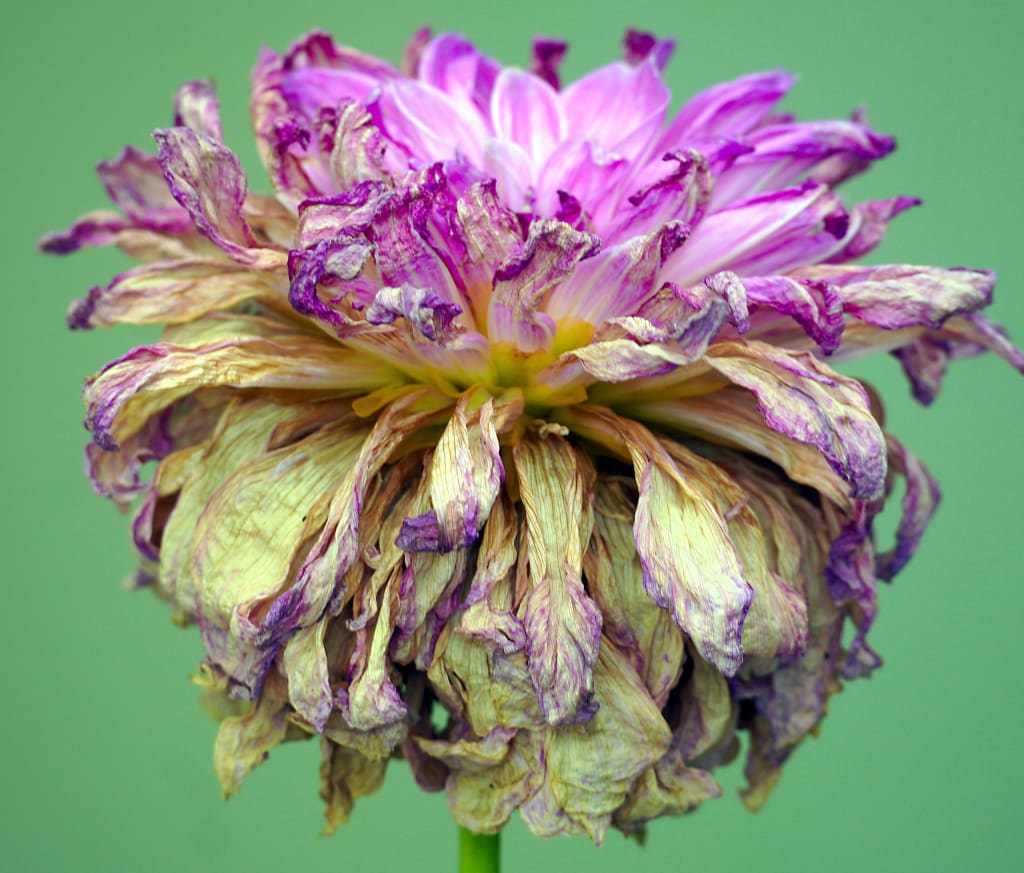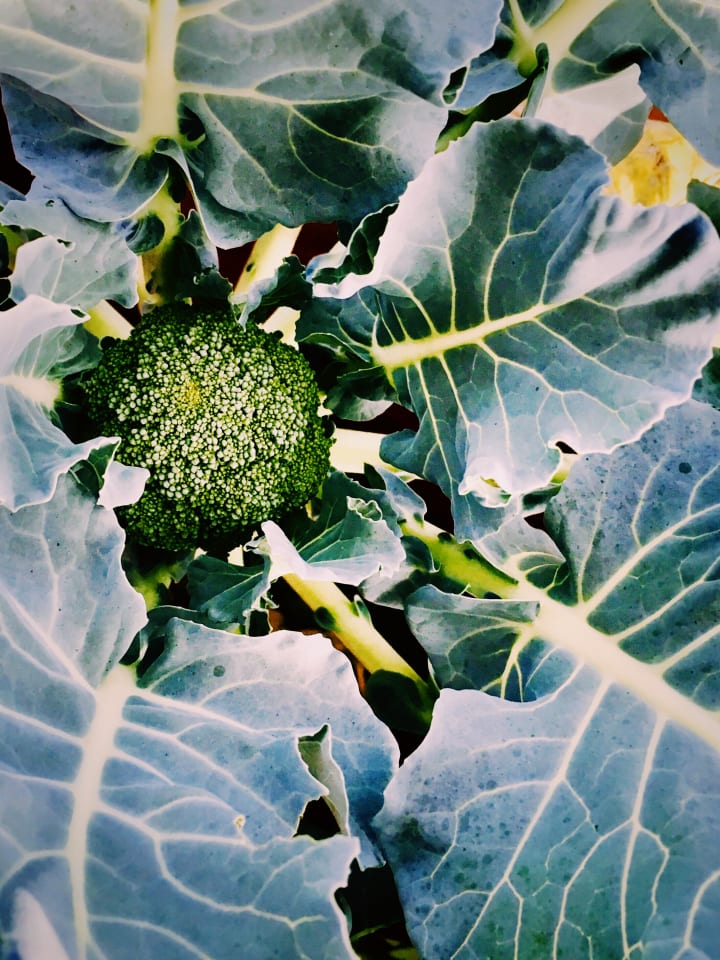How to Make the Most of Being a Guilt-Prone People Pleaser: Become a Better Giver
Learn to give to others without draining yourself and withering away

Guilt, that unsettling feeling, churning deep down, when you think or know you have done something wrong.
It’s unpleasant, but good, in a similar manner to broccoli.
I mean, how would it otherwise be? Imagine a world without us feeling bad for our wrongdoings? (Which earthly human has never done a wrong? Aren’t the people who can never admit to such … most heinous?)
Really, that we feel guilt simply means we have a conscience. It’s not a pleasant feeling: it’s one of those self-conscious, moral feelings that help us lead better lives. When we perceive we’ve done something wrong, the possibility to amend opens up. And if we do, we learn, we grow, and we become more rooted in our conscience. We tend to connect and bond stronger with others too, because — believe it or not — people are generally drawn to honest, responsible, and caring people. Thus guilt is not to be avoided.
Though guilt is only beneficial in ‘appropriate dosages:’ not too much, not too little. More specifically, it’s good to feel guilt when you actually have done something questionable or hurtful to another, it’s not good to feel it for things you’re not truly responsible for (or guilty of) and it’s rarely good when it’s enforced by others. What we need is to become better at discerning what sort of guilt we’re feeling; i.e., what we should or should not be held accountable for. Then act accordingly. If guilty, find a way to amend; if not, learn to let it go. Without rationalizing our own or others’ behavior (read: no excuses! perhaps this is the hardest part!).
To learn to make these discernments takes experience, practice, lots of mistakes, introspection, and self-compassion. Self-compassion, because we can’t achieve much good if we can’t forgive ourselves for all the mistakes we’ll make on the way. Don’t forget that mistakes and failures are our best teachers.
If you, like me, are prone to feeling guilt, you may know how consuming and even paralyzing it can be at times if you get mixed up with people who [un-] wittingly use it against you. Or vice versa (but it tends to be harder to see our own errors).
Inducing guilt in one another — aka guilt-tripping — is an easy and quick way of getting others to do what we like. Yes, indeed, it’s a form of manipulation. It’s not always as bad as it sounds; though, if it’s used excessively, it tends to be. You can find more about it here.
Are you a guilt-prone people pleaser?
If you find it hard to say no to people, because of an exaggerated sense of responsibility for the feelings of others, you might have some tendencies to guilt-proneness. And if you suffer from never being ‘enough’ and feel taken for granted — be vigilant for negative feelings, such as resentments, growing in you. As your good propensity (of a strong conscience) can transmute into something dark if you allow it to be used against you. I.e., when people make use of your giving and yes-saying nature.
That’s why self-care and self-love are key. To root yourself in your conscience. Stop saying yes, when it’s not good for you. That doesn’t make you a bad or selfish person. That way you can give — all you can give — when it comes truly from your heart. To people who sincerely appreciate you, and with whom there is some natural reciprocity.
You may fear that you’ll lose others’ love and affection. So meditate on what that love means. If it’s built on expectations and things you need to do and be to satisfy others, allow yourself to ponder on if it’s the right way for you. You don’t need to lash out or take extreme measures, just allow yourself to reflect on what you want and need too. 
Relationships may take new forms. Some may dissipate. It may not be as bad as that frightened, chattering inner voice speaks and speculates.
'When you choose to perceive love over fear, life begins to flow.'
— Gabrielle Bernstein
It takes time to learn. We progress in baby steps. First, we must learn to discern what is what. Talk with someone of trust. Meditate. Write. Journal. Here’s an excellent guide by ‘no-sayer expert’ Martha Beck, if interested.
Why or how?
'Why am I like this?' or 'How do I live in the best manner — the way that I am?'
Like with all feelings and traits, we exist on spectrums. It’s not black or white. Though, some tend to feel [much] more guilt than others. 'Why?' we often ask. Is it because of our genes or our environment? Is it a punishment from above or from the predisposed genetic codes? (What’s to blame for our peculiarities?)
The why questions are not the only interesting questions though; why not also dig into the how questions. In other words, if I am this way, e.g. guilt-prone, how do I live with it (myself) in the best manner possible during the existing circumstances?
If people tend to take advantage of me — and I cannot force change upon them — what can I do to make things better? I can’t change others but I can change myself. I can  learn to stand up for and fend for myself. And if I do, I might actually be part of creating a better, healthier environment also for others.
A giver who’s not a doormat is a true giver, right?
I can learn to recognize patterns and stop giving to people who mostly take: who let me feel ever more hollow. Or who gives only to have sway over me. (Yes, this happens, you may know. )
Guilt-proneness from the scientific lens
As it was stated in the University of Chicago News,
'Guilt-proneness differs from guilt. Whereas guilt elicits reparative behavior following a transgression, guilt-proneness reflects the anticipation of guilt over wrongdoing and causes people to avoid transgressing in the first place. People who rank high in guilt-proneness feel a greater sense of interpersonal responsibility when they are entrusted, and as such, are less likely to exploit the trust others place in them. '
Some are more guilt-prone than others; it’s a trait that predisposes them to experience stronger negative feelings about personal misdeeds and anticipations of such. Research has shown that people who’re high in guilt-proneness make fewer unethical business decisions, commit fewer delinquent behaviors, and engage in less counterproductive behavior in the workplace.
To quote the same study, 'For guilt-prone individuals, public surveillance is not required to prevent moral transgressions; instead, their conscience guides them.'
Guilt-proneness is positively correlated with the honesty-humility trait, as well as with the traits of conscientiousness and agreeableness (albeit not as strong). Indicating that guilt-prone people tend to be more sincere, fair, modest (honest-humble), as well as slightly more diligent, prudent, perfectionist (conscientious), and also forgiving, flexible, gentle, and patient (agreeable).

Guilt-proneness and trustworthiness — is there a correlation here?
In this study, ‘Who is trustworthy? Predicting trustworthy intentions and behavior,’ the researchers found that the strongest trait predictor of trustworthiness was (you can probably guess) ... guilt-proneness.
It makes sense if you think about it. People prone to feeling and anticipating guilt make them more responsible. And responsible people are reliable. Reliable people tend to be trustworthy.
A knowledgeable person who can admit a mistake or fallacy in their logic is more trustworthy than a person who can never admit to having committed a mistake. (Needless to say?)
While we’re easily beguiled by charm and outer confidence, we might want to look for some signs of healthy guilt-proneness when, for example, hiring employees, finding new collaborators, or meeting with a potential new partner.
Yet many of us—certainly myself included—are, or have been, oblivious to people who feel perilously little guilt. They will inevitably be in our lives; a good idea is to not let them close to our hearts. I say this because I’ve done this mistake myself all too many times.
Not feeling guilt means not owning up to your mistakes: and that will mean serious trouble and possibly damaged hearts. Because everybody makes mistakes, that’s part of being human. If we don’t learn to own up to and resolve them, they’ll insidiously grow into something much worse, long-term. 
Look for signs. Such as always needing to be right, hiding mistakes, lack of vulnerability, ‘love bombing,’ and excessively bad-mouthing and blaming others. Which could be indications of strong outer confidence but clandestine insecurities deep down.
I tend to be quite drawn to idealistic, charismatic, and strong-willed people; what I’ve failed to see was beyond the façade. I’ve been oblivious to the signs: that has cost me shattering pain, suffering, and confusion. So much so I didn’t know if I could ever rise again. I don’t think I’m alone here.
I’ve learned — the hard way — to not be fooled by appearance. Well, I’m still learning (it’s not easy). By investigating and working on my own insecurities I learn to better understand the insecurities in others too; thus I’m less easily fooled than before. Understanding where it stems from — rooted insecurity — helps me to be less angry (and more empathetic) for the hurt others may inflict. Just don’t make the same mistake as I, i.e., excuse them for their actions. Forgiving is key, but sometimes forgiving also means letting go.
Accumulated broken trust can make you withdraw and fill up with resentments. That’s why it’s crucial to become more attentive to one another: to learn to discern who and how to trust.
Without losing faith. Without losing your ability to trust. We all have had our bad experiences, some much worse than others, but that doesn’t mean that there’s no true good out there. It doesn’t mean that all people are this or that way. We all have good and bad in us. The people to build close relationships with are those who can acknowledge their imperfections and have a will to improve. People can change— if they’re willing. The best way to help them is to show them that we believe in them. 
'If you trust people, that’s an act of courage.'
— Jordan Peterson
To trust will always mean a risk, that’s why it is an act of courage. To have been hurt, abandoned, deceived, etc., and still have the ability to trust again — that’s courage. That’s trust beyond blind, naïve faith.
When we trust one another there’s almost nothing we can’t achieve together. It’s key for building healthy, synergistic relationships; it’s key to collaborating well professionally (as well as globally). It’s the most worthwhile risk we can take.
But taking risks is best done in a stepwise manner. Trust is something we build and that grows [or withers]. It’s not something black or white. We show with our actions how trustworthy we are.
So, please, don’t be fooled by impeccable words.
Summary and final tips
Learn to discern what sort of guilt you are feeling: should you be held accountable or not? Slow down and take your time, it’s not a quick thing. Learn to follow your deep conscience. Then, decide upon correct measures. Don’t be guilted into doing things that are not good for you. In such cases, you needn’t be apologetic about saying no. Learn from your mistakes, we all make them: they’re our best teachers.
Look to actions—real actions—not tales of actions, before you give your full trust away. Reduce contact and exposure to people who leave you feeling utterly drained. Not out of anger or exclaiming that they’re bad, but out of self-care, so that there will be energy for other things and people too. In my own case so I have the energy to, for instance, write.
Find those to give to, who don’t deplete you (i.e. who don’t become overly possessive, controlling, and manipulative). And be lenient and forgiving to the extent you can.
Yes, it’s harder—much harder—in times of pandemic and lockdowns, but try to think long-term. Small steps, even baby steps, towards the right direction make all the difference. Stark working on yourself. I find introspective meditation and writing/journaling to be key. Disgorging feelings on paper can be tremendously relieving. (Warning! Initially, it can be painful! But that pain is not dangerous. It will abate.) Putting words to thoughts and feeling helps you understand yourself. It’s cathartic and disentangling. It helps you sort out those fear-ridden feelings. It makes it easier to see things for what they are.
It starts from you, from within, from self-love and self-care. By knowing what’s good and true for you, you learn what you can and cannot share with others with your full heart. It’s ok that others won’t always understand.
Originally published on Medium.







Comments
There are no comments for this story
Be the first to respond and start the conversation.